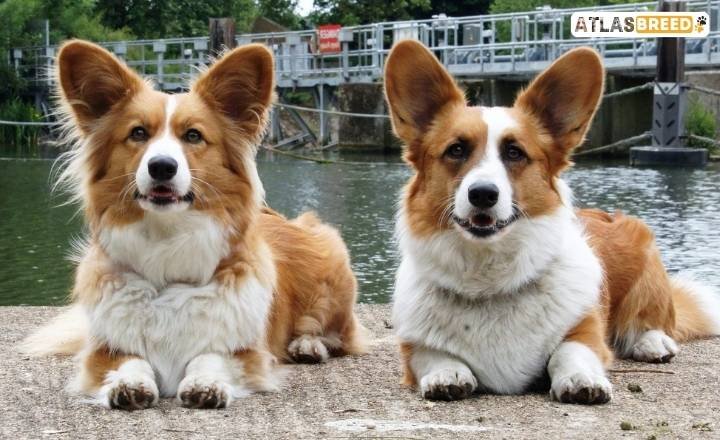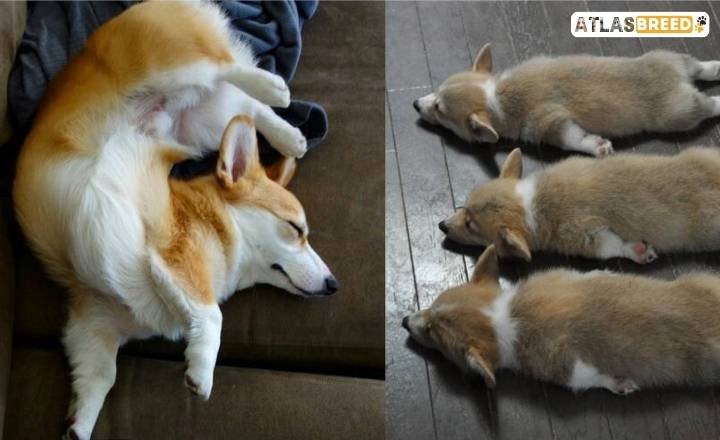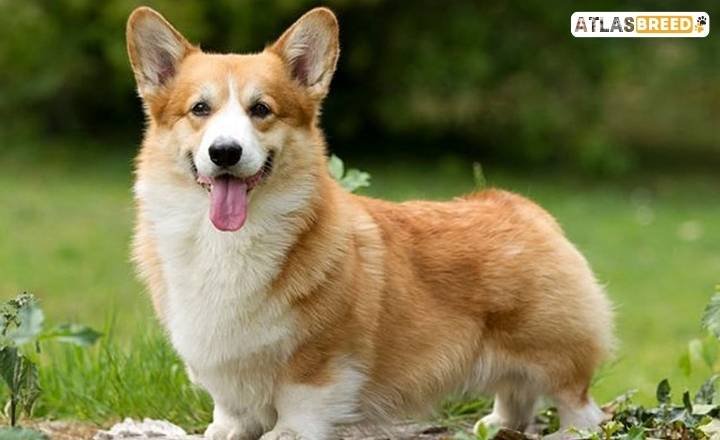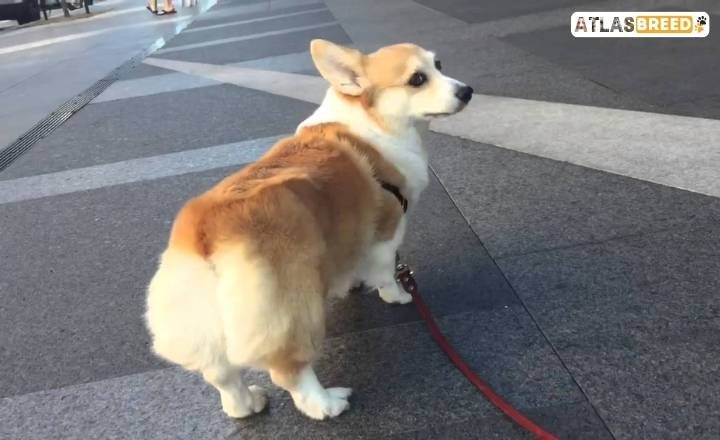The Corgi Growth Chart is a valuable tool for pet parents eager to understand how their furry friends develop over time. Whether you’re a first-time owner or a seasoned enthusiast, tracking your Corgi’s growth isn’t just about numbers; it’s a journey filled with joy and discovery.
Each stage of Corgi’s growth brings its own set of quirks and challenges. Pembroke and Cardigan breeds have various delightful characteristics paired with varying sizes.
The Corgi Growth Chart
The Corgi size chart serves as a fascinating roadmap to understanding the unique developmental stages of these beloved pups, which are completely different from the German shorthaired pointer growth chart. From their adorably stout legs to their expressive faces, tracking a Corgi’s growth can be an endearing journey for any pet owner.
A typical Corgi will reach around 75% of its adult height by six months, showcasing how quickly they grow early on. It’s at this stage that you begin to witness their personalities solidify whether they’re bounding joyfully or flaunting their bossy demeanour.
While size and weight provide valuable benchmarks, factors like diet and exercise are crucial in shaping a healthy adult dog. Monitoring not just physical development but behavioural traits during this time can unveil important insights into your pup’s temperament from playful fetch sessions to their preferred cuddle spots on the couch.
| Male puppy | Female puppy | |
| Eight weeks | 4″ -6″ | 4″ -6″ |
| Three months | 5″ -7″ | 5″ -7″ |
| Six months | 7″ -8″ | 7″ -8″ |
| Nine months | 9″ -10″ | 9″ -10″ |
| One year | 10″ -12″ | 9″ -11″ |
| Two years | 10″ -12″ | 9″ -11″ |
The Corgi Weight Chart
These beloved, stocky dogs typically weigh between 25 and 30 pounds as adults, but knowing how much your Corgi should weigh at various stages of its puppyhood is crucial. From the moment they burst into your life, tracking their weight can provide insights into their nutritional needs and overall well-being.
| Puppy age | Male | Female |
| Eight weeks | 8-10 pounds | 7-9 pounds |
| Three months | 10-13 pounds | 9-11 pounds |
| Six months | 17-24 pounds | 20- 26 pounds |
| Nine months | 19-22 pounds | 18-20 pounds |
| One year | 20-30 pounds | 20-26 pounds |
| Two years | 22-31 pounds | 22-28 pounds |
The Pembroke Welsh Corgi vs. The Cardigan Welsh Corgi
Though often thought of as two peas in a pod, the Pembroke Welsh Corgi and the Cardigan Welsh Corgi embody distinct characteristics that make each unique in the canine world.
Contrary to popular belief, their differences run deeper than just the presence or absence of tails. The Pembroke typically has a docked tail due to tradition, while the Cardigan sports a more natural look.

This distinction is just one aspect; even physical builds vary, with Pembrokes being generally lighter and slightly smaller according to Corgi growth charts that detail average weight and height progression.
The Male Corgis vs. the Female Corgis
When diving into the world of Corgis, enthusiasts often find themselves captivated by the distinct differences between the Pembroke Welsh Corgi and the Cardigan Welsh Corgi. While both breeds share a rich history rooted in Wales, their traits set them apart significantly.
The Pembroke is typically recognized for its sleek body and fox-like face, complemented by its signature docked tail or even a natural bobtail. In contrast, the Cardigan boasts rounded ears and a more robust stature, featuring a long, flowing tail that adds to its charm.
Gender also plays an intriguing role in this dynamic duo of breeds. Male Corgis are often perceived as larger and more boisterous than their females; they carry an air of playful prominence that captures attention effortlessly. Female Corgis tend to showcase nurturing instincts and may be slightly smaller but engage deeply with family members emotionally.
All The Corgi Puppy Developmental Stages
This Corgi puppy development timeline is extraordinarily helpful for new puppy owners who are interested in what happens each week within the first year of the pup’s life.
From Birth To Two Weeks Of Age
During this crucial developmental phase, they completely depend on their mother for nourishment and warmth. At birth, these tiny bundles usually weigh between 1 and 2 pounds, and their eyes and ears are sealed shut effectively creating a world cocooned in the soft sounds and scents of their littermates.

As they begin to grow, you can almost watch them transform before your eyes; by the end of two weeks, many will have doubled in weight, poised at the cusp of exploring a broader sensory environment.
From Two Weeks To Ten Weeks Of Age
During the transformative period from two weeks to ten weeks of age, Corgi puppies undergo remarkable changes that shape their personalities and abilities. At two weeks, these adorable bundles of fur are largely dependent on their mother.
Their eyes slowly begin to open around ten days, revealing those big, expressive baby blues that tug at our heartstrings. This early stage is critical for sensory development; as they start to hear and see the world around them, you’ll notice an uptick in playful behaviours, which signal their burgeoning curiosity.
From Ten Weeks to Four Months Of Age
This stage is crucial for socialization, where exposure to various environments, sounds, and people helps establish a well-adjusted canine companion. A properly socialized Corgi will embrace new experiences with confidence rather than fearfulness, making training sessions and outings significantly easier in the long run.
From Four Months To Six Months Of Age
From four months to six months of age, your Corgi puppy is undergoing a fascinating transformation that sets the stage for their personality and behaviour. This period marks a critical phase known as the juvenile stage, where social skills begin to flourish.

This is an ideal time to expose them to various experiences, from different sounds and sights in your neighbourhood to meet diverse people and animals, which can significantly shape their temperament.
From Six Months To Ten Months Of Age
Between six to ten months, Corgi puppies enter a transformative phase that is crucial for their socialization and behavioural development. During this period, they experience significant cognitive growth alongside an evolving personality.
Owners may witness their playful pups shifting into more independent and stubborn behaviour, which can be both entertaining and challenging. This stage is marked by increased confidence Corgis often test boundaries as they explore their environment with newfound curiosity.
From Ten Months To Twelve Months Of Age
As your corgi puppy transitions from ten to twelve months of age, this phase marks a critical juncture in their development, blending the last remnants of puppyhood with the emergence of young adulthood.

The energy levels might begin to stabilize, but don’t be fooled; their enthusiasm remains boundless! This is an excellent time for reinforcing training and socialization skills.
Over A Year Of Age
During this period, you’ll notice noticeable shifts in their energy levels; while they may have been bounding with exuberance as a young pup, they will gradually become more composed but likely retain that playful spirit.
This stage is crucial for reinforcing training and socialization established in earlier months, as consistency now helps mold your Corgi into a well-adjusted adult dog.
Conclusion
By tracking your Corgi’s weight and size throughout its various developmental stages, you can identify potential health issues early and provide appropriate care.
Knowing what to expect during their growth can help you prepare for necessary adjustments in diet, exercise, and training.
FAQs
When Do Corgi Pups Stop Growing?
Corgis will reach their full height around a year old. Most Corgis will be close to their full size around the same time, but some puppies may need up to two years to completely fill out their chest.
How Quick Do Corgi Pups Grow?
Corgis will reach their full height around a year old. Most Corgis will be close to their full size around the same time, but some puppies may need up to two years to completely fill out their chest.
Is The Corgi Breed For Me?
Due to their affectionate nature, intelligence, and small size, corgis can make great first-time dogs. They are happy in most environments and get along well with children.
